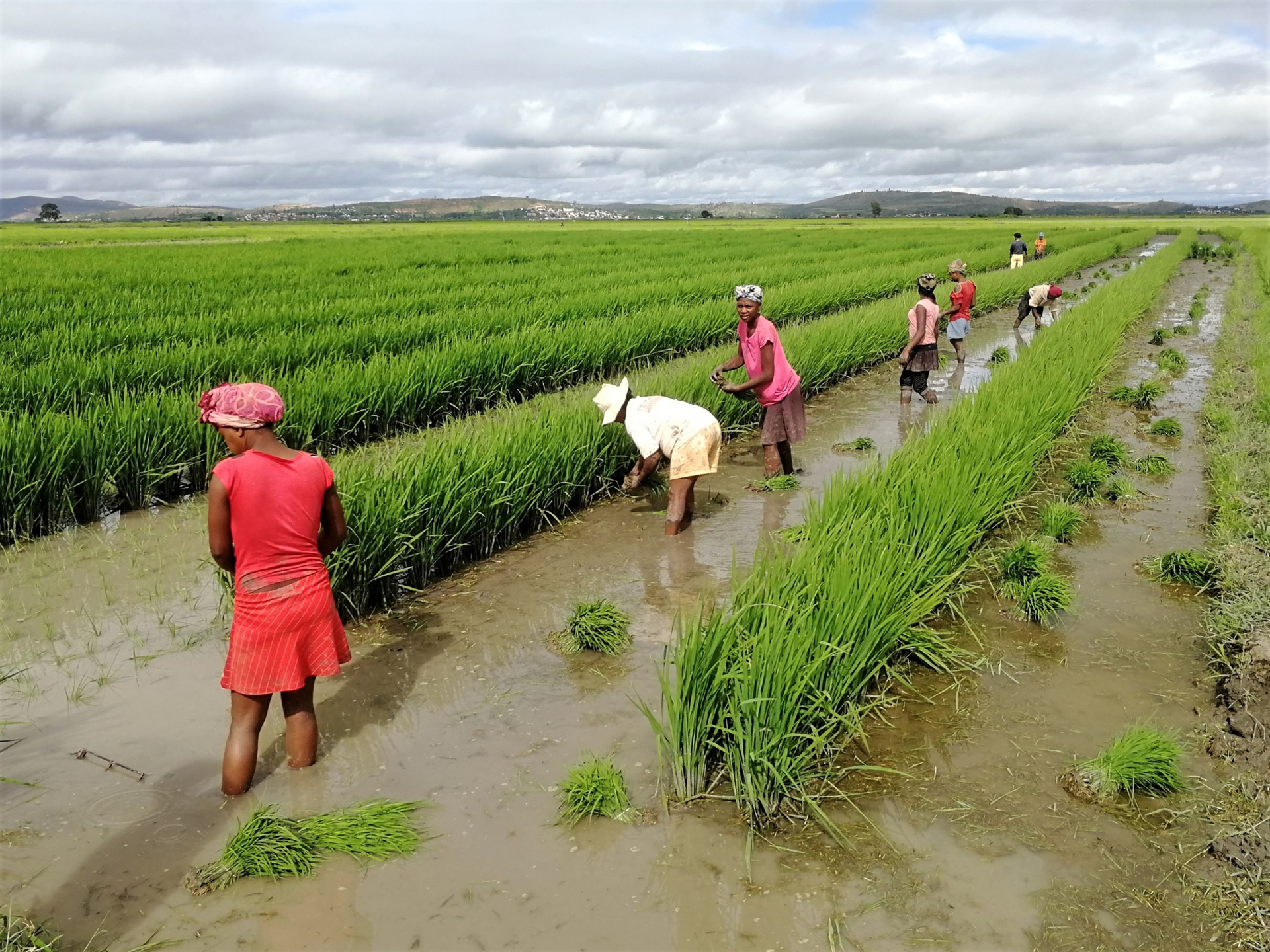May 20, 2025 | 22:28 GMT +7
May 20, 2025 | 22:28 GMT +7
Hotline: 0913.378.918
May 20, 2025 | 22:28 GMT +7
Hotline: 0913.378.918

Rice farming in Madagascar.
Global food commodity prices rose in July, influenced by the termination of the Black Sea Grain Initiative and new trade restrictions on rice, the Food and Agriculture Organization of the United Nations (FAO) reported today.
The FAO Food Price Index, which tracks monthly changes in the international prices of globally-traded food commodities, averaged 123.9 points in July, up 1.3 percent from the previous month while 11.8 percent below its July 2022 level.
The increase was driven by a sharp jump in the FAO Vegetable Oil Price Index, which rose 12.1 percent from June after seven months of consecutive declines.
International sunflower oil prices rebounded by more than 15 percent in the month, due mostly to renewed uncertainties surrounding the exportable supplies after the Russian Federation’s decision to end implementation of the Black Sea Grain Initiative.
World prices for palm, soy and rapeseed oils increased on concerns over output prospects in leading producing countries.
The FAO Cereal Price Index declined by 0.5 percent from June, driven by a 4.8 percent drop in international coarse grain quotations due to increased seasonal supplies of maize from ongoing harvests in Argentina and Brazil and potentially higher-than-anticipated production in the United States of America.
However, international wheat prices rose by 1.6 percent, their first monthly increase in nine months, due to uncertainty over exports from Ukraine as well as continued dry conditions in North America.
The FAO All Rice Price Index increased by 2.8 percent on the month and 19.7 percent on the year to reach its highest nominal level since September 2011, as India’s 20 July prohibition of non-parboiled Indica exports fostered expectations of greater sales in other origins, amplifying upward pressure already exerted on prices by seasonally tighter supplies and Asian purchases.
This upward pressure of rice prices “raises substantial food security concerns for a large swathe of the world population, especially those that are most poor and who dedicate a larger share of their incomes to purchase food,” FAO warned, adding that export restrictions can bear adverse consequences on production, consumption and prices that last beyond the duration of their implementation and risk exacerbating high food domestic inflation in many countries.
The FAO Sugar Price Index declined by 3.9 percent as good progress in Brazil’s sugarcane harvest and improved rains across most growing areas in India weighed on world quotations, as did subdued demand from Indonesia and China, the world’s largest sugar importers.
Persistent concerns over the potential impact of the El Niño phenomenon on sugarcane crops, along with higher international crude oil prices, mitigated the decline.The FAO Dairy Price Index declined by 0.4 percent in July to stand 20.6 percent below its July 2022 value. World cheese prices recovered slightly after steep recent declines as hot weather affected seasonally declining milk supplies in Europe.
The FAO Meat Price Index declined 0.3 percent from June. Quotations for bovine, ovine and poultry meat declined on solid supply availabilities and in some cases lower demand from leading importers. Pig meat prices, by contrast, rose, reflecting high seasonal demand coupled with ongoing tight supplies from Western Europe and the United States of America.
(FAO.org)

(VAN) Attempts to bring down the price of the Japanese staple have had little effect amid a cost-of-living crisis.

(VAN) Fourth most important food crop in peril as Latin America and Caribbean suffer from slow-onset climate disaster.

(VAN) Shifting market dynamics and the noise around new legislation has propelled Trouw Nutrition’s research around early life nutrition in poultry. Today, it continues to be a key area of research.

(VAN) India is concerned about its food security and the livelihoods of its farmers if more US food imports are allowed.

(VAN) FAO's Director-General emphasises the need to work together to transform agrifood systems.

(VAN) Europe is facing its worst outbreak of foot-and-mouth since the start of the century.

(VAN) The central authorities, in early April, released a 10-year plan for rural vitalization.